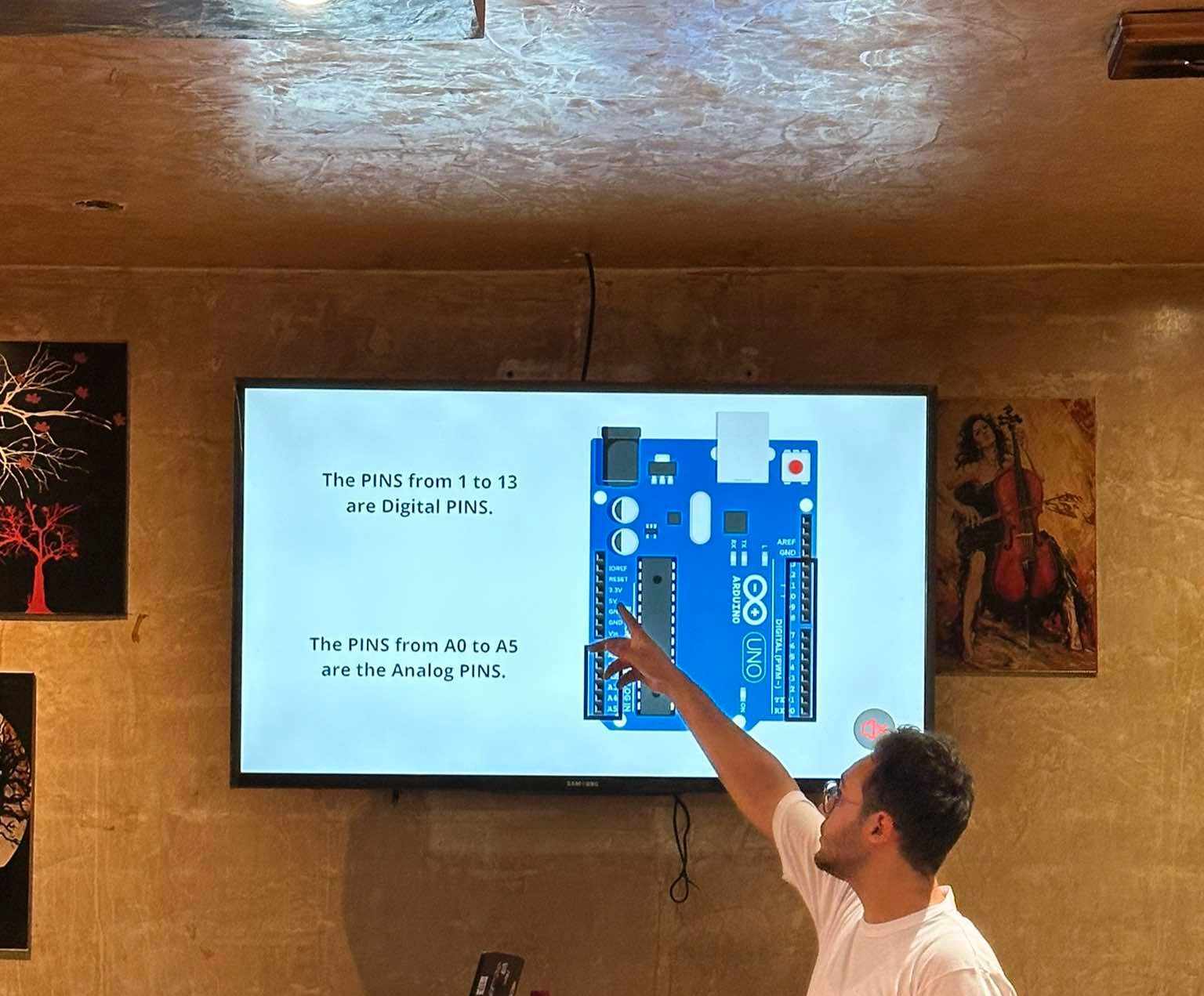Arduino Introduction Workshop
On Sunday, October 6th, the IEEE RAS IIT Student Branch Chapter hosted an introductory Arduino training session aimed at beginners. The session started with a comprehensive presentation covering fundamental concepts, including:
- What is Arduino?: An introduction to Arduino as an open-source electronics platform that allows easy use of both hardware and software.
- Why Arduino?: Highlighting its versatility, affordability, and wide application in projects ranging from simple electronics to IoT (Internet of Things).
- Arduino and IoT: Explaining the relationship between Arduino and IoT and how the Arduino IoT Cloud enables easy creation of IoT projects.
- Circuit Basics: Covering digital and analog signals, understanding microcontrollers, Arduino pins, and basic components like resistors, LEDs, and sensors.
Following the theoretical part, participants engaged in hands-on workshops to solidify their understanding. The workshops included:
- Basic LED Circuit: Building a simple circuit to control an LED with the Arduino.
- Blinking LED Activity: Programming the Arduino to blink an LED with specific time intervals.
- Multi-LED Control: Connecting and programming three LEDs (red, blue, green) to turn on and off in sequence.
For the workshops, high-quality materials were provided, including:
- Arduino Uno boards: The most widely used microcontroller for beginner projects.
- Breadboards: For easy prototyping and connecting components without soldering.
- Various sensors and actuators: Temperature, humidity, and soil moisture sensors for environmental monitoring projects.
- Jumper wires: Male-to-male, male-to-female, and female-to-female cables for connecting components.
- LEDs, resistors, and basic electronic components.
The event provided an excellent introduction to Arduino and allowed participants to experiment with real-world applications like IoT and environmental monitoring. It was a successful, hands-on experience that gave attendees the tools to start their own Arduino projects.

